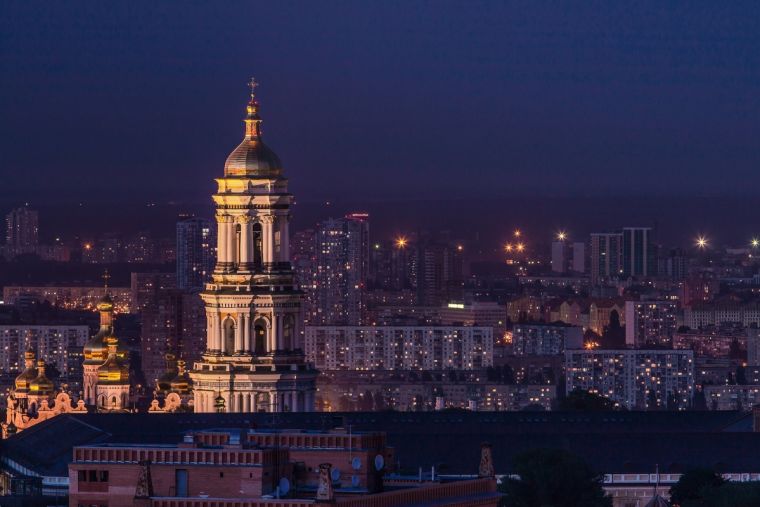Bottom of the well theology: a Christian perspective from Ukraine

During this war, I have become increasingly aware of how emotional and geographic proximity relates to the perception of information. For our friends abroad, the news of the Ukrainian tragedy could remain just a piece of information about events in a neighbouring country.
For us, it is the destruction of our world, our families, and our futures. Even the most sympathetic cannot experience what we are experiencing here on an existential level. Peering into a well and being at the bottom of one are two completely different experiences.
- Who knows how to pray with a woman who was raped by a Russian soldier for a week and then watched him shoot her sick mother when the woman refused to go with him to Russia?
- How does one comfort a wife whose husband ran to get help as she went into labour but was killed outside their house?
Theoretical answers I might have formulated prior to this war did not adequately prepare me for the actual words and deeds required in reality. So, allow me to provide some Christian perspective from the bottom of the well - the most important lessons we, the Ukrainian Evangelical believers, have learned through facing the challenges brought by this war.
The Beauty of Solidarity
Those who haven't seen sunlight for months, hiding in basements from Russian bombs and rockets; those who lost all they had built and their loved ones; and those who have been victims of physical violence, do not need triumphant preaching or endless moralising. They need Christ.
During these months of war, I have seen absolute beauty time and time again, the perfect incarnation of God's love in our imperfect and war-torn world. I pray that this present experience of compassion and co-suffering in solidarity will open us up to the pain of other people, regardless of their location and circumstances, so that we would be distressed in their distresses (Isaiah 63:9 AMP) and bear their burdens as far as is possible (Galatians 6:2 ESV).
The Need for Humility
I also pray that sharing our experience can foster humility in the church at large. From the very first days of the war, many of our international friends, surely with the best intentions, started to encourage Ukrainian Christians to forgive and reconcile with Russian Christians.
Despite their orthodoxy and biblical vocabulary, I believe such appeals are terribly untimely. With the onset of the war, we in Ukraine have entered a Gethsemane, overwhelmed by loneliness and despair from the horror of the heinous violence suffered by innocent compatriots and friends.
Deathly sorrow overcomes hearts with the thought that the hardest times are still ahead. Jesus sent out His disciples to preach the gospel throughout the world, even to the oppressive Romans, at whose hands He had been crucified. But that was later. In the garden, His request was simple—to share His pain with Him, just to be near Him with no appeals and admonishments. That is the kind of humble solidarity we long for from the global church.
The Challenge of Truth
War from the thick of it and war from the news look different. Experiencing the war from the thick of it, you unconsciously strive for accurate wording. The purpose of this war is not some mythical "denazification"— unless by this notion one means the physical destruction of us, our culture, and our identity. Such word choice not only gives distorted information but also justifies and perpetuates the horrific injustice done to the victims of war.
Abstract prayers for peace in Ukraine may suggest that Ukrainians must accept their fate of an "error of history" and return to the fold of the Russian empire. What is the way to real peace? We seek the peace that will allow us to remain free people with the right to choose our path. Therefore, to pray for peace in Ukraine and to be fair to Ukrainians means to pray for Russia's military defeat and for the collapse of its economic power.
The Power of Hope
I used to wonder why many Holocaust survivors committed suicide later on — remembering poet Paul Celan, philosopher Jean Amery, and Primo Levy, grand witness to the horrors of Auschwitz (in which my own grandmother also died). But today, I understand that the level of violence and human evil they experienced deprived them of ways of returning to normal life, to healthy relationships, and the ability to trust people.
After the end of the war, one of the most difficult challenges for all of us will be to switch to peaceful life and return the war to its proper place – a fragment in the totality of our existence. How can this happen? It happens when we experience the hope that the infinite reality of the Kingdom of God inaugurated on the cross overcomes any totality on this side of eternity. What a hope we have! That hope can get us through.
Roman Soloviy is the Director of the Eastern European Institute of Theology in Lviv, Ukraine. He also serves as editor-in-chief of Theological Reflections: Eastern European Journal of Theology, a chief editor of the book series "Contemporary Protestant Theology", and a regional commissioning editor for Langham Literature.











